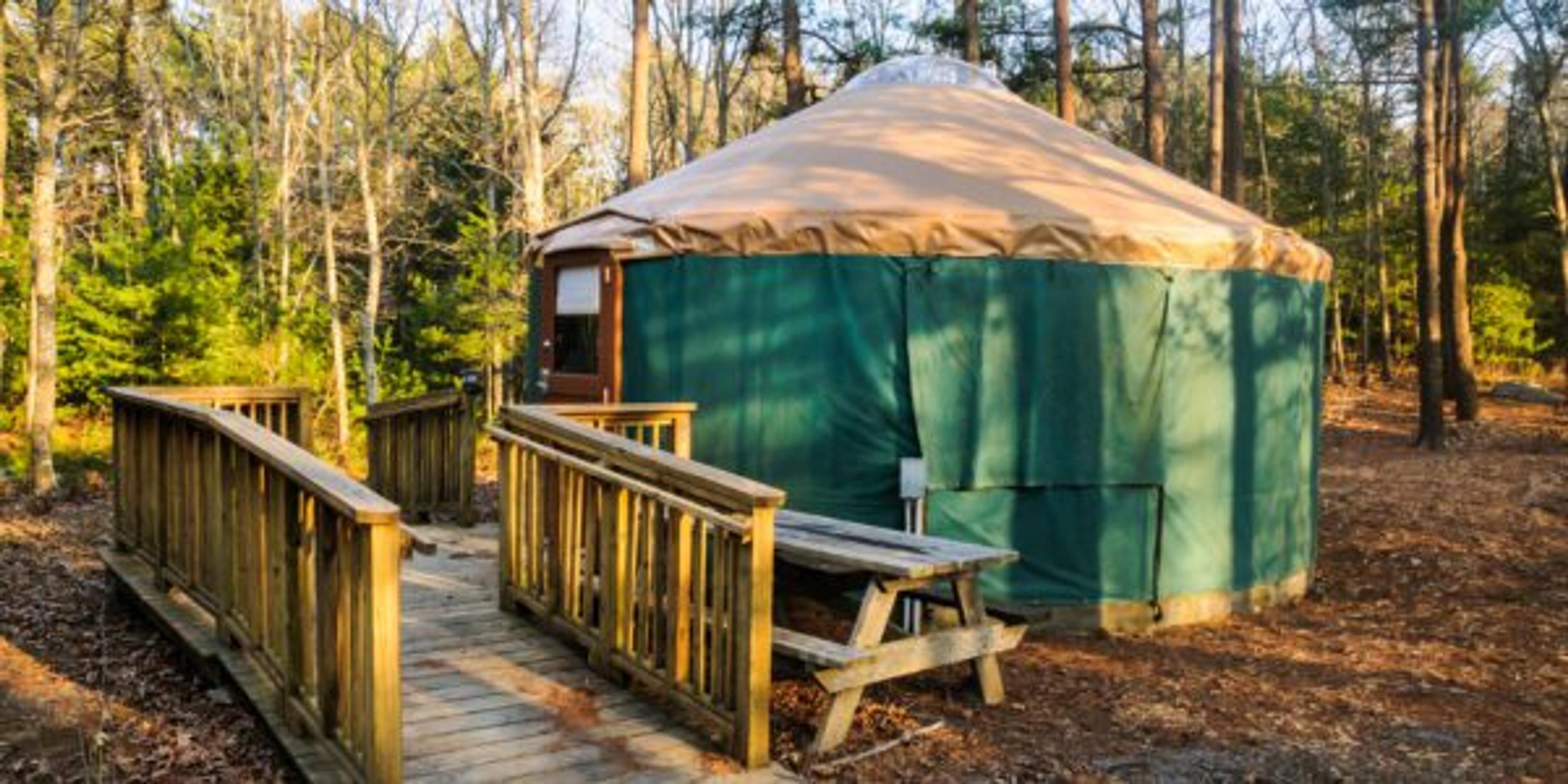Accessible Camp Sites and Lodges in Michigan
Shandra Martinez
| 3 min read

Hey camping fans, how do these digs sound for your next vacation? A three-bedroom lodge situated halfway between Tahquamenon Falls’ upper and lower waterfall areas. A yurt located in the Muskegon woods near Lake Michigan, complete with a solar lantern and a quaint wood stove. Or maybe a rustic cabin tucked in the woods near Grayling, featuring a hand pump for water and a picnic table outside. What might surprise you? These state-owned camping sites are all designed to be accessible.
Mini-cabins, bigger camper cabins, spacious lodges, yurts and more cool housing options have been multiplying at Michigan’s state parks and recreation areas in the last few years. And the great news is that so many of these options are accessible. They are being built and designed in such a way to make it easier for people who use wheelchairs, walkers or have mobility issues to be able to use these sites and enjoy the state’s natural beauty.
Options are available across both the Upper and the Lower Peninsula, in remote areas and in spots near bigger cities.
Here are some examples of each type of accessible camping cabin or lodge offered, with a list of where they are available statewide. All reservations have to be made through the Michigan Department of Natural Resources’ (DNR) system.
Accessible lodges
One prime example of a lodge is the one sitting at the entrance to Traverse City State Park. Like lots of park lodges, this one looks more like a ranch-style home. It has an accessible ramp to the front door and is right across the street from the swimming beach. Using the park’s roads, you can also access the TART bike trail that runs right to downtown Traverse City and the new Boardman Lake Loop. Other accessible lodges are available at:
- Porcupine Mountains Wilderness State Park
- Cheboygan State Park
- Tahquamenon Falls State Park
- Grand Haven State Park
- Fayette Historic State Park
Accessible yurts
These are just plain fun. Like a huge, roundish tent with a sturdy framework, yurts offer more of a glamping experience. One example is the yurt at Tawas Point State Park. It’s furnished with bunk beds and sleeps up to six people. It has a front ramp and deck area outside the yurt. Others are available at:
- Muskegon State Park
- Pinckney Recreation Area
- Craig Lake State Park
Accessible rustic cabins
The snug, modern two-bedroom cabin at Sleepy Hollow State Park is one example. It can sleep up to six people. It also comes with a stunning view. It overlooks the 400-acre Lake Ovid. Other sites include:
- Brighton Recreation Area
- J.W. Wells State Park
- Harrisville State Park
- Hartwick Pines State Park
- Thompson’s Harbor State Park
Accessible camper cabins
These three-room cabins are great for a couple or a few friends. They typically feature bunk-style beds. The two camber cabins at Holland State Park look out over the channel and the “Big Red” lighthouse on Lake Michigan. Others are available at:
- Lakeport State Park
- Van Riper State Park
- Sleepy Hollow State Park
- Onaway State Park
- Holly Recreation Area
- Tahquamenon Falls State Park
- Waterloo Recreation Area
- Ionia Recreation Area
- Tawas Point State Park
- Pinckney State Recreation Area
Accessible mini cabins
These small, one-room cabins are perfect for a couple people. The one at Mitchell State Park in Cadillac has views of two lakes. Others can be found at:
- Burt Lake State Park
- Holly Recreation Area
- Leelanau State Park
- Port Crescent State Park Ludington State Park
- South Higgins Lake State Park
- North Higgins Lake State Park
- Harrisville State Park
- Ionia Recreation Area
- McLain State Park
- Straits State Park
- Otsego State Park
- Indian Lake State Park
- Fort Custer Recreation Area
Related:
- Photo credit: Getty Images





